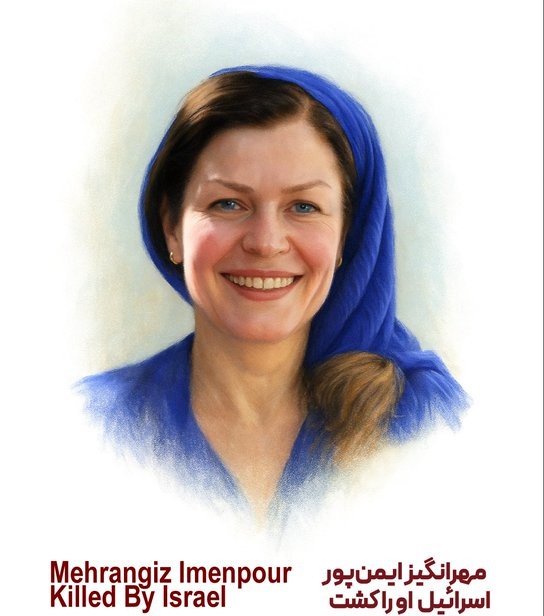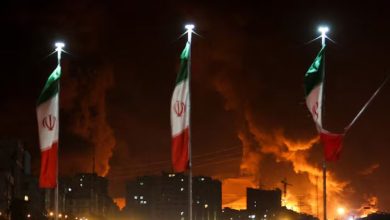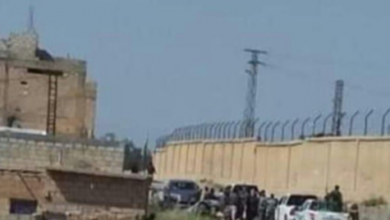When missiles strike homes, hospitals, and the gates of Evin Prison instead of battlefronts, international law becomes nothing more than a defenseless word
During the 12-day war initiated by the Israeli regime, which overtly violated Iran’s sovereignty and the foundational principles of international law, one of the most horrifying and unforgettable atrocities was the direct attack on the public entrance of Evin Prison in Tehran. This was a place where prisoners’ families, civilian staff, conscript soldiers, and even unsuspecting passersby walked every day. Evin Prison is not a military center or a security base; it is simply a gate to hope, a place for pursuing the rights of incarcerated loved ones, and a human focal point in the heart of a restless city.
In this unprecedented attack, dozens of civilians were killed or wounded. Images released from the scene showed the lifeless and dismembered bodies of individuals who had no connection to military operations. Despite Israel’s repeated claims of targeting “military objectives,” this attack is a clear example of violating the Principle of Distinction, which is explicitly stated in Article 48 of Additional Protocol I to the four Geneva Conventions (1977). This principle mandates that parties involved in conflict must differentiate between military forces and civilians. Targeting a public area explicitly constitutes a War Crime, as clearly outlined in Article 8(2) of the Rome Statute of the International Criminal Court (ICC).
However, this was just one instance in a series of systematic atrocities carried out by Israel during this brief but deadly war. Medical centers, hospitals, ambulances, and healthcare personnel were also targeted in pre-planned attacks. This is despite the fact that, according to Article 18 of the Fourth Geneva Convention (1949) and Article 12 of Additional Protocol I, these facilities must receive special protection even near conflict lines.
Warning announcements urging people to evacuate residential areas within minutes or hours, accompanied by threats of attack, constituted a blatant violation of the Principle of Precaution and the Principle of Proportionality, as stipulated in Article 57 of Additional Protocol I. These warnings not only failed to provide sufficient time for civilians to save their lives but also created widespread fear and resulted in extensive psychological consequences.
Field reports confirm that these attacks have left severe psychological impacts on children, women, and the elderly, effects that will likely endure for years. In one case, a woman in her 40s from Kermanshah, who was a target of an attack, stated that she hasn’t had a peaceful night’s sleep since that day and experiences psychological shock at the slightest sound.
In other instances, Iranian scientists and experts were targeted by missile strikes in their private homes, alongside their family members. These actions are a direct violation of Article 51 of Additional Protocol I, which states: “Civilians shall not be the object of attack.” Furthermore, according to Article 52 of the same Protocol, residential homes are immune from any attack unless they are effectively being used for military operations. Targeting these homes, often resulting in the deaths of women, children, and the elderly, constitutes a double war crime.
Israel’s overall conduct in this war, particularly the repeated use of disproportionate force, indiscriminate threats, and attacks on civilian infrastructure, is a blatant violation of the International Covenant on Civil and Political Rights (ICCPR), a treaty to which both Iran and Israel are parties. This Covenant declares the right to life, the right to security, and human dignity as non-derogable, even during armed conflict. These atrocities also directly contradict the fundamental principles of the Universal Declaration of Human Rights (UDHR).
According to Article 25 of the Rome Statute of the International Criminal Court, individuals who directly participated in or ordered the commission of war crimes, including Israeli Prime Minister Benjamin Netanyahu, must be held individually criminally accountable.
Iranian Kurdistan Human Rights Watch, relying on field evidence and the principles of international law, urges the international community, especially responsible institutions, to take the following immediate actions:
- The International Criminal Court (ICC) should immediately initiate formal proceedings to investigate Israel’s war crimes in Iran.
- States Parties to the Geneva Conventions and their Additional Protocols must demonstrate their commitment to the effective implementation of these documents and not remain silent in the face of Israel’s blatant violations.
- Mechanisms for seeking justice and reparations for the victims’ families should be established through international legal frameworks.
On the day Israel fired upon the public entrance of Evin Prison, it didn’t just target a physical location; it fired upon the hope of mothers who dragged themselves to that gate every week.
It launched missiles at people’s trust in law, in humanity, in human dignity.
If the world remains silent today in the face of this crime, tomorrow, gates in every corner of the world will be closed—not by locks, but by missiles and fire.
Justice cannot be bartered for politics.
Justice must be served.






